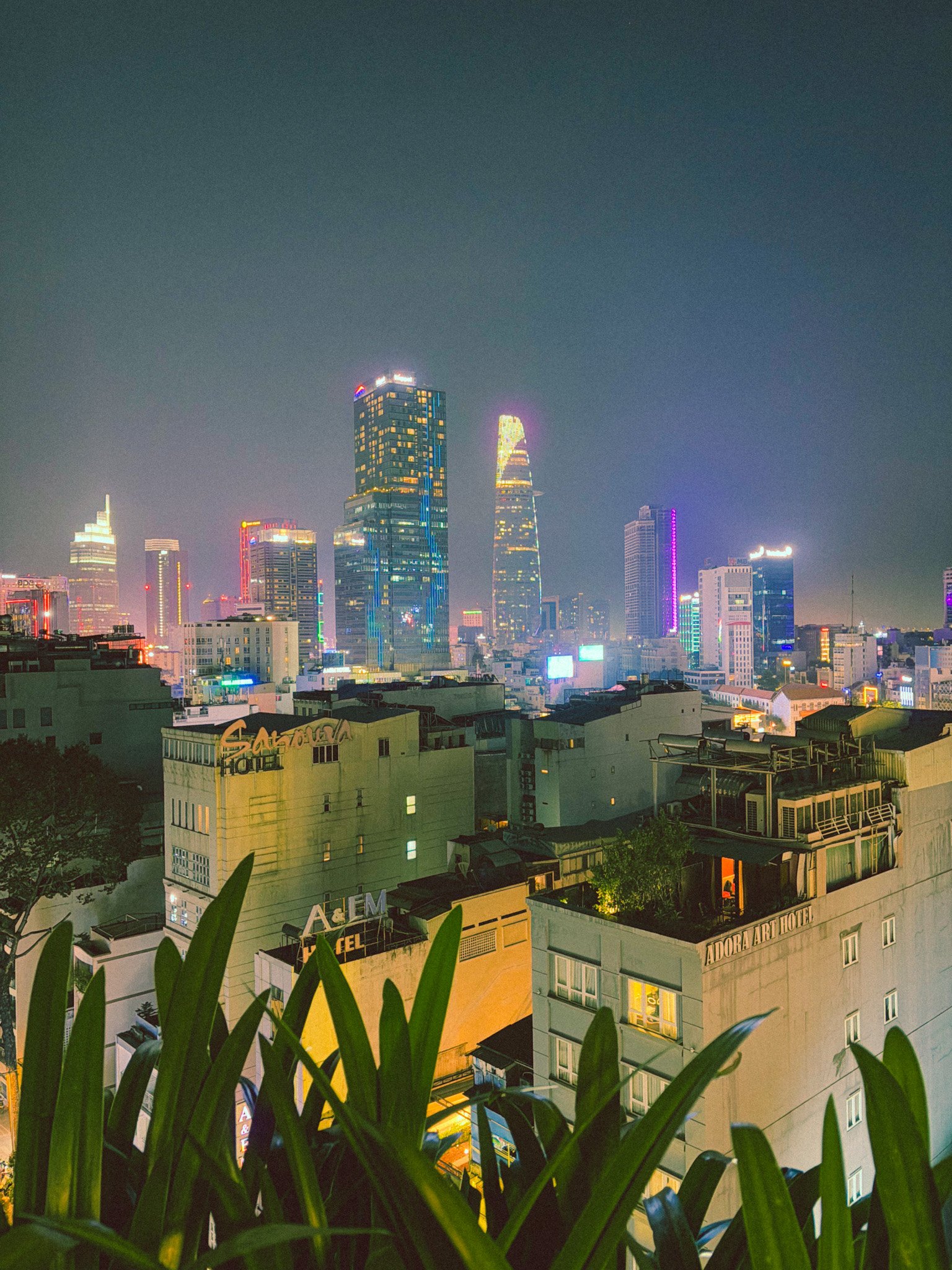【Sài Gòn】Saigon City Guide
This post contains affiliate links, meaning EVERLASTYING will earn a commission if you purchase through our link at no extra cost.
Read my disclosure for more information. I appreciate your support 🤍
When my partner and I got to Saigon, I’ll be real — I was a little overwhelmed. 🚦
The motorbikes, the noise, the nonstop energy — it hits you fast.
But after a few days exploring District 1, hanging out in District 7 with my friend who moved to Saigon, and hanging out with her local friends, something just clicked… Saigon’s chaos isn’t random — it makes sense. It’s alive, electric, and unforgettable.
Just like she said, the traffic is like fishies swimming in the sea. 🐟🐟🐟
😲 FUN FACT
When I asked the locals if they preferred calling it Ho Chi Minh City or Saigon, every single one said “Saigon.”
So, out of respect (and the love I have for them), that’s what we’re rolling with here. ❤️
Let’s dive in.
brief history
Saigon is Vietnam’s beating financial heart — and it’s been through a LOT.
Pre-1600s: Saigon was originally part of Cambodia.
1698: Vietnamese Nguyen lords took over during their southward expansion (known as Nam Tiến). Saigon became their capital.
1862 - 1949: After the fall of the Citadel of Saigon, the city became the capital of French Cochinchina under colonial rule.
1949 - 1955: Saigon served as the capital of the State of Vietnam after France recognized Vietnam’s independence.
1955 - 1975: It was the capital of South Vietnam during the Vietnam War.
1976: After North Vietnam’s victory, the city was renamed Ho Chi Minh City to honor their leader.
(Locals still call it Saigon or HCMC — and honestly, so should you.)
By the 1990s, Saigon had boomed again — expanding rapidly, modernizing rapidly, and becoming a global trade hub.
Today, over 9.8 million people live in Saigon, a city wrapped in rivers and canals, anchored by the mighty Saigon River.
Where is Saigon City?
Where did the name Saigon come from?
It’s believed to originate from 柴棍 (Chái Gùn), recorded in Le Quý Đôn’s Miscellaneous Chronicles of the Pacified Frontier (1674), when a Cambodian prince ruled over the area under Vietnamese protection.
What about “Ho Chi Minh”?
The name Ho Chi Minh combines Vietnamese words meaning “enlightened will” (Hồ 胡 - “enlightened will”, Chí 志 - “spirit”, 明 Minh - “light”), representing Vietnam’s revolutionary spirit.
know before you go!
LANGUAGE
Vietnamese is the primary language spoken in Saigon, while French was introduced during the colonial period as a second language. In popular touristy areas, younger generations also speak English, and occasionally, Chinese can be heard as well!
CURRENCY
Vietnamese Dong (VND)
TIPPING
In Vietnam, there is generally a no-tipping policy, which helps keep prices low, allowing locals to live comfortably.
However, if you choose to tip, it’s recommended to give around 10-15%. Tipping is typically acceptable in places like hotels, spas, when ordering food deliveries, and when using ride-sharing services like Grab.
Whether or not to tip often depends on how much you appreciate the service. Some people prefer to keep it simple and do not tip at all, but I believe that when someone provides an exceptional service, it's nice to express gratitude. A small tip can go a long way in acknowledging their hard work.
SAFETY
⟢ Crossing the street might feel a bit intimidating at first, but once you get the hang of it, it becomes quite simple — almost like playing Frogger or Crossy Road. 🐸🐔🚦
Crosswalks exist, but often don’t work
Don’t panic. Walk steadily (don’t run), and vehicles will flow around you
Moped's honk = “I see you!”, not “Get out of the way!”
⟢ Grab App: Download Grab (like Uber) for safe, affordable rides around the city.
⟢ Saigon is generally safe, but like traveling to any foreign country, always be smart:
Keep your bags close, especially in crowded areas
Be aware of common scams
Put your phone and personal belongings in the front and avoid in back pockets
EMERGENCY CONTACTS
Child protection: 111 | Life-saving services: 112 | Police: 113 | Fire: 114 | Ambulance/First Aid: 115
plan your trip
BEST TIME TO VISIT
We visited in November and it was HOTTT with the occasional rain.
🌞 Dry Season (December – April): Best weather for sightseeing!
🌧️ Rainy Season (May – mid-November): Hot, humid, and cheaper — but still worth it for fewer crowds.
INTERNET & WIFI
WiFi is strong at most cafes and hotels. BUT if you’re exploring a lot, an eSIM is a game-changer. We used Airalo and loved it.
⚡PRO TIP
Install your eSIM before you land in Vietnam, so it activates as soon as you land!
Or grab a SIM card at the airport — booths are everywhere.
PLUGS
Vietnam uses Type A and Type C plugs.
Pack a Universal Adapter just to be safe!
tours you might like
where to dine
where to explore
find your perfect stay
helpful guides
-
Wikipedia: Ho Chi Minh City
check out my STARLUX overview!
11162024 18:45 - 11232024 20:12
Last Updated: 11.10.2025








Looking for a sleek, aesthetic spot to sip creamy eggyolk coffee in Saigon? This guide breaks down the full Eggyolk Coffee Saigon menu, honest review, and nearby hotel + SIM picks — so you can sip, snap, and stay stress-free.